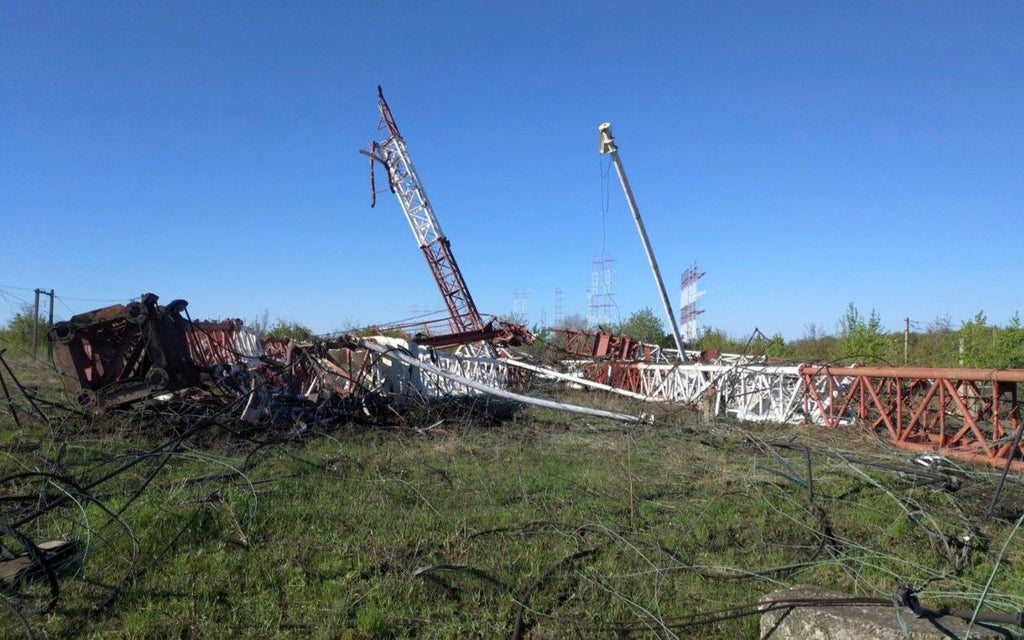
Russia has accused Nato of fighting a proxy war by supplying Ukraine with arms, as explosions in Moldova’s breakaway region of Transnistria raise fears of a new front in the conflict.
Russian foreign minister Sergei Lavrov said the danger of a third world war was “serious and real”, and that Moscow views weapons provided to Ukraine by the alliance as legitimate targets.
“Nato, in essence, is engaged in a war with Russia through a proxy, and is arming that proxy. War means war,” Mr Lavrov said.
His comments came as western allies pledged new packages of yet more powerful weapons for Ukraine during a meeting at a German air base.
Nato partners have recently approved shipments of hundreds of millions of dollars’ worth of arms, including artillery and drones they held back from sending during the earlier phase of the war, and US defence secretary Lloyd Austin said that more help was on the way.
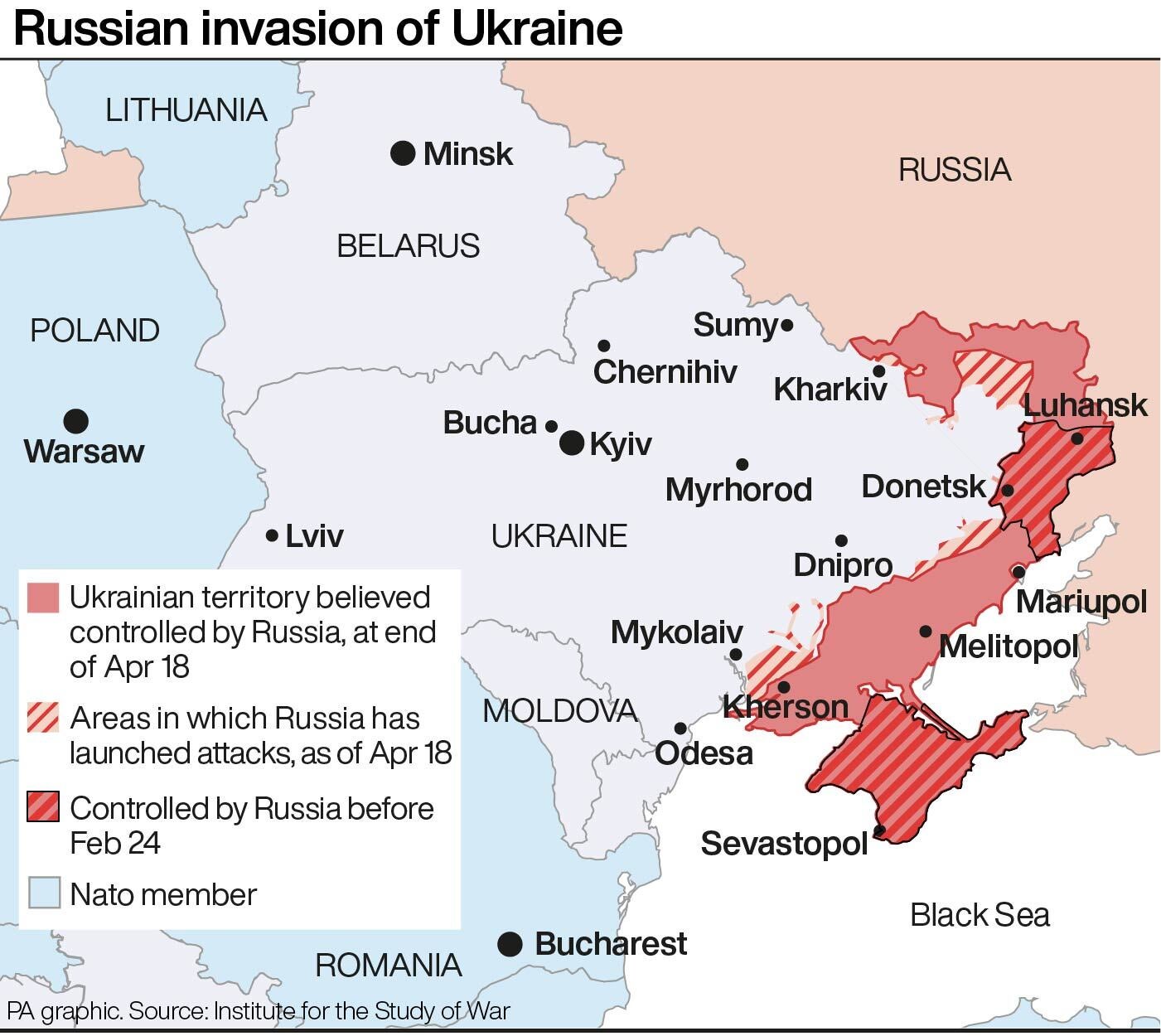
“Nations from around the world stand united in our resolve to support Ukraine in its fight against Russia’s imperial aggression,” he told officials from more than 40 countries at the Ramstein air base. “Ukraine clearly believes that it can win, and so does everyone here.”
In a notable shift, Germany, whose government has previously come under fire after refusing Ukrainian appeals for major arms, announced it would now send “Gepard” light tanks equipped with anti-aircraft guns. Berlin also said it would train Ukrainian troops on German soil.
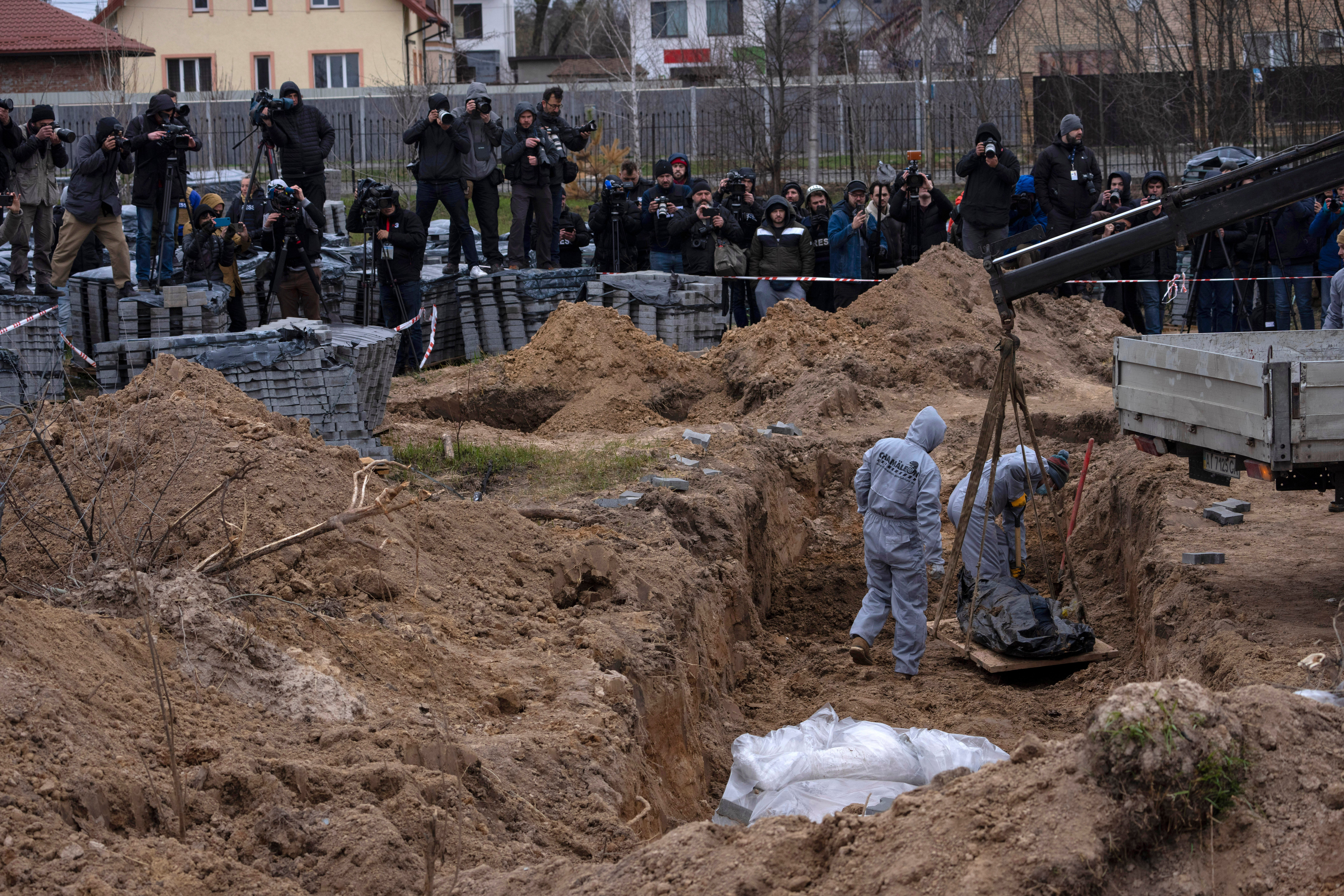
Moldova raised its terrorist threat level and the Kremlin voiced serious concerns after two blasts damaged Soviet-era radio masts in the pro-Russian breakaway region of Transnistria, where authorities said a military unit was also targeted.
Moldovan authorities are sensitive to any sign of growing tensions in Transnistria, an unrecognised Moscow-backed territory bordering southwestern Ukraine.
Ukraine said it was a Russian attempt to drag the region into the war, but Moscow blamed the blasts on “terrorists”.
Analysts said it was unclear whether the incidents were a false-flag operation by the Kremlin or genuine acts of sabotage by anti-Russian groups.
In eastern Ukraine, authorities in the besieged city of Mariupol said that the Azovstal steel plant – currently being used as a shelter for Ukrainian civilians and remaining troops – had been hit by 35 airstrikes in the last 24 hours.
“Russia has drastically intensified strikes over the past 24 hours and is using heavy bunker bombs,” said Petro Andryushchenko, adviser to Mariupol’s mayor. “The number of those wounded will be clear once the rubble is cleared.”
Elsewhere in Ukraine, bloodshed continued as local officials said at least nine people had been killed and several more injured in Russian attacks in towns and cities in the east. Pavlo Kyrylenko, governor of the Donetsk region, said on the Telegram messaging app that Russian forces “continue to deliberately fire at civilians and to destroy critical infrastructure”.
Furthermore, the General Staff of the Ukrainian Armed Forces said that Russia’s offensive in the Kharkiv region had become more intense as Russian troops try to advance.
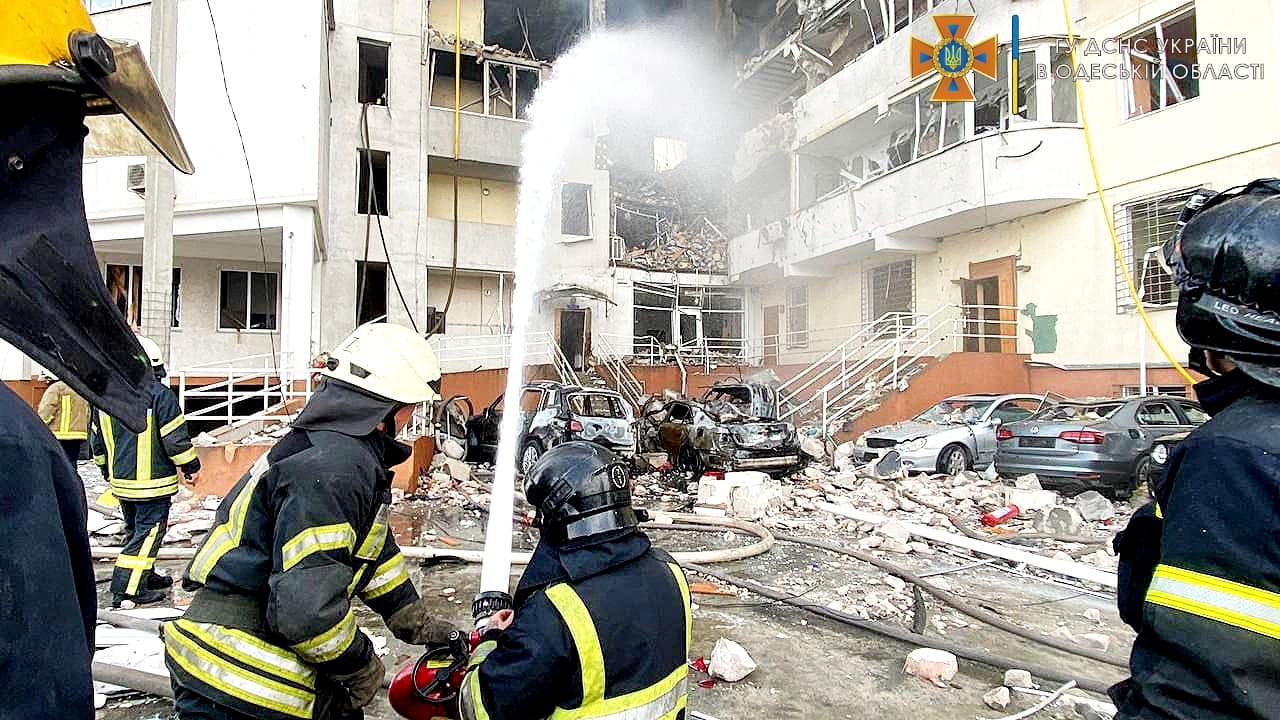
In its latest assessment of the fighting, the UK’s Ministry of Defence reported Russian advances and heavy fighting in the Donbas, with one city, Kreminna, apparently falling after days of street-by-street fighting.
The UK’s armed forces minister, James Heappey, claimed that Vladimir Putin’s increased attacks on the east were part of a desire to win the war before Russia’s Victory Day parade on 9 May. But speaking on BBC Breakfast he added that Russian commanders “will know from all their command and staff training it is absolute folly to launch an offensive before you’ve massed all of your combat power”.
He added that “driving the Russian army to launch an offensive now, simply so Putin can have a nice day in the sun” would cost Russia thousands of lives.
Russia’s defence ministry warned of a swift and “proportional response” if the UK continues its “direct provocation” of the Kyiv regime.
On Tuesday, UN secretary-general Antonio Guterres began talks in Moscow with Mr Lavrov and Mr Putin.
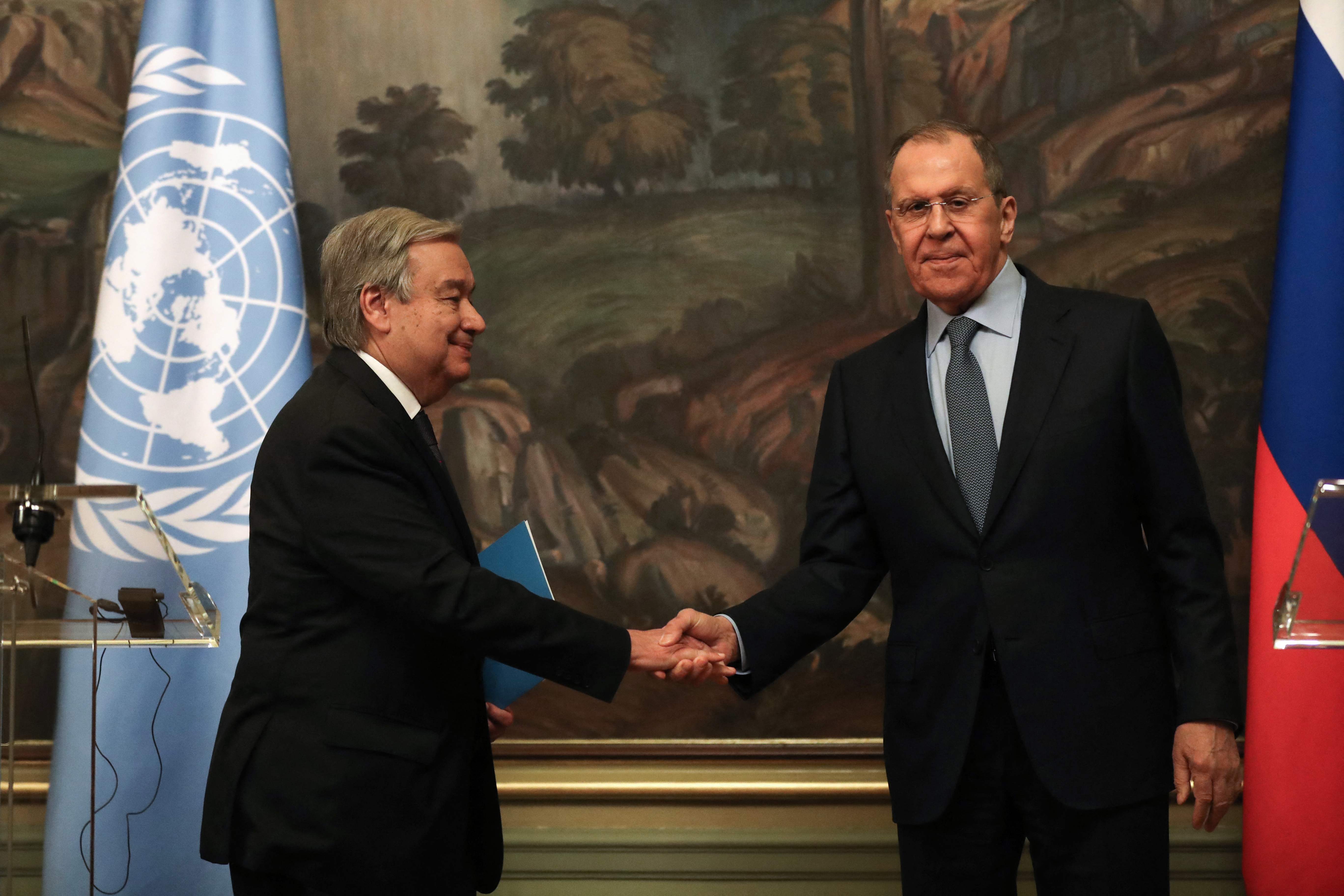
“We are extremely interested in finding ways in order to create the conditions for effective dialogue, create the conditions for a ceasefire as soon as possible, create the conditions for a peaceful solution,” Mr Guterres said at a meeting with Mr Lavrov ahead of talks with the Russian president.
In a separate development, the UN refugee agency said it expected some 8.3 million refugees to have fled Ukraine by the end of the year.







